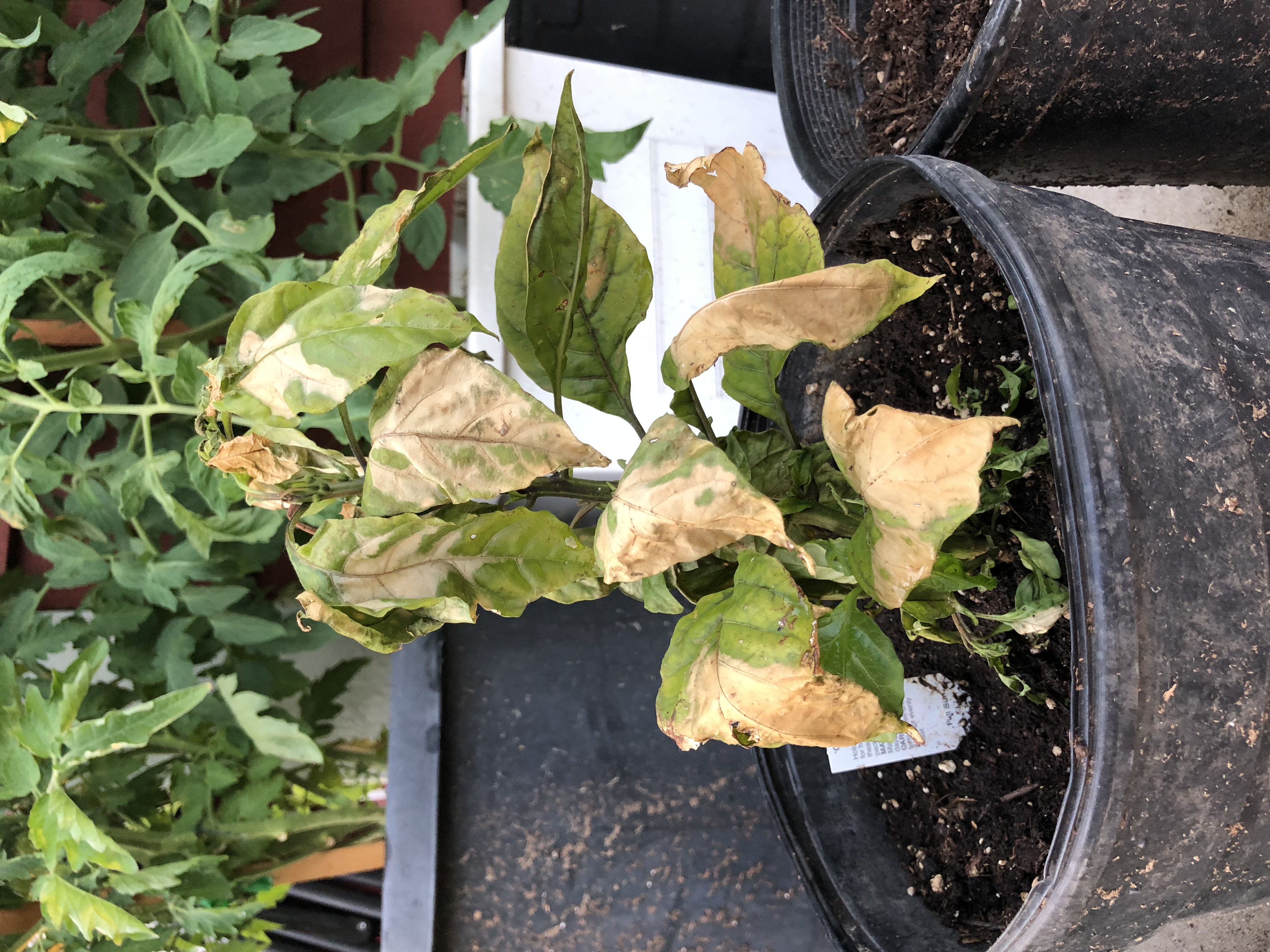Organic Vs. Synthetic Fertilizers: Which Is Best for Supporting Healthy Pepper Plants?
In the realm of supporting healthy and balanced pepper plants, the selection between organic and synthetic fertilizers stands as a critical choice with far-ranging effects. While both alternatives purpose to provide vital nutrients to sustain plant development, the subtleties of their effect on the soil, plant health and wellness, and the atmosphere trigger a dispute that mirrors throughout the horticulture neighborhood. Comprehending the unique advantages and potential pitfalls of each fertilizer kind is critical for pepper cultivators seeking to optimize their returns while preserving a sustainable and eco-conscious approach.
Advantages of Organic Plant Foods
Organic fertilizers provide a lasting and environmentally-friendly technique to beneficial pepper plants, offering essential nutrients without using artificial chemicals. These all-natural fertilizers are originated from organic resources such as compost, manure, bone dish, and seaweed, advertising dirt health and wellness and biodiversity. Unlike artificial plant foods, natural choices launch nutrients slowly, making sure a balanced and steady supply for pepper plants to thrive.
One considerable advantage of organic plant foods is their capacity to improve dirt structure and water retention. By improving dirt health, organic plant foods promote useful microbial task, which helps in nutrient uptake by pepper plants. Additionally, organic plant foods lower the risk of chemical run-off, securing water resources from pollution and protecting the setting.
In addition, organic fertilizers add to lasting dirt fertility by promoting the growth of helpful dirt organisms. These organisms assist damage down raw material, releasing nutrients in a type that is conveniently accessible to pepper plants. best fertilizers for peppers. By promoting a healthy and balanced dirt environment, natural fertilizers support sustainable pepper growing methods that benefit both plants and the atmosphere
Disadvantages of Synthetic Fertilizers
Artificial fertilizers, in contrast to their organic counterparts, present numerous downsides when utilized to nurture pepper plants, affecting both plant health and wellness and environmental sustainability. One significant drawback of artificial plant foods is their tendency to seep nutrients from the soil quickly.
Moreover, the overuse of artificial fertilizers can contribute to water air pollution. Excess plant foods not taken in by plants can remove right into water bodies, causing eutrophication, where algae flowers deplete oxygen degrees in the water, harming aquatic life. Furthermore, synthetic fertilizers are normally originated from non-renewable sources, such as fossil fuels, contributing to carbon discharges and environmental destruction during their manufacturing.
Nutrient Absorption Comparison
Reliable nutrient absorption plays a critical function in the total health and development of pepper plants. When contrasting synthetic and natural plant foods in terms of nutrient absorption, natural fertilizers have the advantage of giving a more well balanced and slow-release source of nutrients (best fertilizers view for peppers). Organic fertilizers have a variety of macro and trace elements that are not just valuable for the plants but additionally promote healthy and balanced soil microbial task, which assists in nutrient uptake. On the other hand, synthetic plant foods commonly provide a fast release of nutrients, which can cause seeping and overflow, causing lower nutrient absorption rates by the plants.
Moreover, natural fertilizers enhance dirt framework and water retention ability, allowing pepper plants to access nutrients a lot more successfully. This improved soil top quality assists in origin growth, enabling much better nutrient absorption. Artificial plant foods, although at first enhancing plant development as a result of their high nutrient focus, might impede long-lasting nutrient absorption by derogatory soil health and wellness in time.
Ecological Effect Considerations

On the other hand, artificial plant foods, although commonly more focused and quickly offered to plants, can have detrimental results on the atmosphere if not used correctly (best fertilizers for peppers). Their production needs high energy inputs, leading to greenhouse gas exhausts and adding to environment change. The runoff of excess artificial plant foods can infect water sources, leading to eutrophication and harming water ecosystems.
Best Fertilizer Practices for Peppers
When feeding pepper plants, maximizing nutrient uptake and reducing ecological influence are key considerations. To accomplish this, it is important to comply with ideal fertilizer methods customized to the details demands of pepper plants. One essential method is to do a dirt examination before applying any kind of plant foods. This test can identify the pH degree of the dirt and recognize any kind of nutrient deficiencies, directing you in choosing one of the most ideal plant food formulation.
Another vital technique is to fertilize pepper plants at the ideal time. Generally, peppers take advantage of obtaining plant food at growing and then once again when they begin to flower. Over-fertilizing can bring about nutrient discrepancies and damage the plants, so it is important to adhere to advised application rates.
Furthermore, choosing a well balanced fertilizer with an NPK proportion that matches pepper plants' demands is essential. Organic plant foods, such as compost or manure, can be outstanding options as they launch nutrients gradually and boost soil structure over time. Nonetheless, artificial fertilizers can offer a quick nutrient increase when required. Eventually, combining organic and artificial plant foods carefully can assist nurture healthy pepper plants while decreasing ecological effect.
Verdict

Organic fertilizers use an environmentally-friendly and lasting strategy to nourishing pepper plants, giving crucial nutrients without the usage of synthetic chemicals. Unlike artificial fertilizers, natural options launch nutrients slowly, making certain a balanced and steady supply for pepper plants to grow.
Artificial fertilizers, in contrast to their natural counterparts, pose numerous downsides when used to nurture pepper plants, impacting both plant wellness and environmental sustainability. When comparing natural and artificial plant foods in terms of nutrient absorption, organic fertilizers have the benefit of providing an extra well balanced and slow-release source of nutrients.In addition, organic plant foods improve dirt framework and water retention ability, allowing pepper plants to accessibility nutrients more effectively.